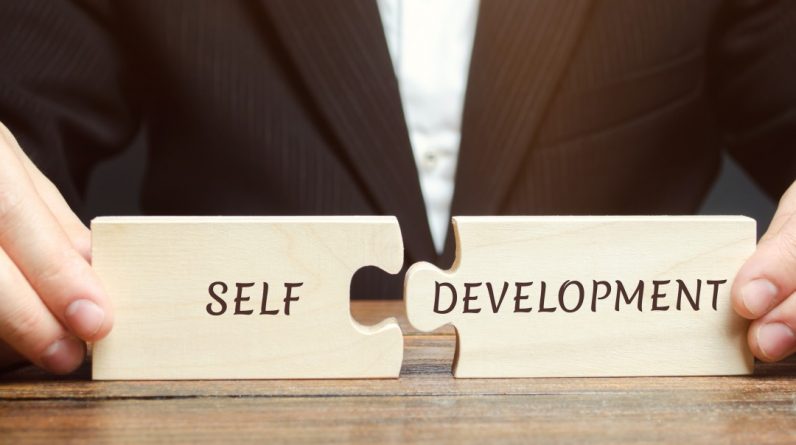Thrive In 2023 And Beyond: 10 Power Habits To Develop Mental Toughness
Mental toughness — or the ability to persevere through mentally-challenging situations, emotions, and more — is a valuable skill to acquire. When you’re mentally tough, you’re able to work through situations that threaten the well being of your mental health. In 2023, consider developing these ten power habits to develop a stronger sense of mental toughness.
Practice your sense of resiliency when faced with a difficult situation.
Resilience, or the ability to quickly “bounce back” after facing a setback or difficult situation, is an excellent habit to have if you want to develop more mental toughness. Practice “bouncing back” after something bad or negative happens instead of moping or wallowing in tough emotions. Many people discover that resilience is like a muscle — the more you work it, the stronger it becomes.
Develop a mantra to use when you’re struggling with your mental health.
Using mantras is another great habit for developing mental toughness. Mantras, or short phrases you can repeat to get your thoughts realigned with your main focus or goal, are excellent to use anytime you’re struggling to keep your mind and spirit on the right track. Some examples of good mantras you can use to work through a challenging situation include…
- I can do hard things.
- I’ve been through tough situations before, and I can do it again.
- I have the power to do good.
- I can make smart choices.
Reach out to your support system when you need extra help.
There is never any shame in asking for help when you need it. In fact, knowing when to reach out to another person for support is one of the best things you can do to sharpen your sense of mental toughness. Asking for help can be challenging — sometimes, it makes people feel like they’re being too weak. In reality, leaning on your support system is a great way to fortify your mental health, especially in times of hardship.
Speak to yourself with kindness.
The way you speak to yourself has the power to greatly affect your overall mental health. Get into the habit of speaking to yourself with kindness — doing so is one of the best, most positive ways to make yourself mentally tougher. Even when the world seems like it is against you, if you feel like you can trust yourself to show yourself kindness, you can work your way through any situation, no matter how difficult it may be.
Challenge your negative, anxious, and worried thoughts.
Do your thoughts tend to be negative? When you’re feeling anxious or stressed, is it difficult for you to divert your thinking toward anything that isn’t your current source of worry? If this sounds familiar, getting into the habit of challenging your negative thinking would be a great habit to develop as a way of strengthening your mental toughness. Challenging your thoughts can be difficult, so it may take lots of practice and patience to perfect. The next time you experience a series of negative thoughts, practice comparing those thoughts to your actual reality — more often than not, you’ll likely realize that your worries and stressors are coming from a place that is more imaginative than realistic.
Use deep breathing exercises to bring yourself back to a state of calmness.
A great way to sharpen your sense of mental toughness is to reconnect with your breathing patterns when you’re feeling out of control. For example, when you find yourself in particularly stressful situations, get into the habit of walking away momentarily and practicing some deep breathing exercises. By focusing on regaining control of your breathing, you also get your thoughts and other bodily processes back in order. Being able to regain control of your breathing helps you develop mental toughness because it helps you move past racing thoughts and that uncomfortable :out of control” feeling quicker.
Remind yourself that making mistakes and failing is normal and perfectly okay.
Mistakes and failures are going to happen. Experiencing them is a totally normal (albeit uncomfortable) part of human life. Get into the habit of reminding yourself that it is okay to make mistakes and fail. Even though it doesn’t feel great when it happens, it’s not unusual. Life will eventually move forward — and it will move forward again quicker if you develop mental toughness by accepting failure and mistakes as a normal part of living.
Practice pulling the main lesson learned out of any mistake or failure you experience.
Get into the habit of finding the main lesson you can learn from every mistake or failure you experience. It’s easy to get caught up in the big emotions that often accompany failing or making mistakes; it can wear on you for days, weeks, and even years after the failure or mistake happens. Instead, you can bolster your sense of mental toughness by extracting the lesson you learned from the experience and then moving forward with life afterward.
Let yourself actually feel and experience your emotions in real-time.
One of the best habits to form if you want to develop a stronger sense of mental toughness is learning how to process your emotions in real-time. Big emotions aren’t fun to handle…especially if you’re struggling with emotions like grief, sadness, anger, frustration, or fear. Rather than giving in to the temptation to hide or ignore these big feelings, get into the habit of actually letting yourself feel and experience them. Not only will you connect with yourself on a much deeper level, but you’ll also process your big feelings more effectively, bringing relief to your mental health.
Allow yourself to accept criticism gracefully.
Receiving criticism is tough. It can be hard to hear someone criticize something about you or the work you’ve done. However, criticism holds a lot of value — often, it can be used as a blueprint for making much-needed improvements to yourself, your work, and more. Get into the habit of accepting criticism gracefully rather than becoming defensive about it. This helps you develop mental tough




